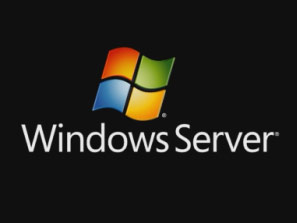The news regarding Windows Server is that with the 2008 version of this Windows-based operating system the Terminal Services will be replaced with Remote Desktop Services. This is not to say that Microsoft took out one feature and replaced it with a brand new one, because it didn’t. Remote Desktop Services is simply the next development of Terminal Services, one that gives online workers a new level of remote access.
Director of product management with the Windows Server marketing team, Manlio Vecchiet commented at the TechEd EMEA 2008 conference:
“Remote Desktop Services (RDS) is the new name for Terminal Services, and reflects the expanded role in Windows Server 2008 R2 so that you can run the desktop or applications in the datacenter while your users can be anywhere,” Vecchiet stated. “RDS enables a full-fidelity desktop or application experience and efficiently connects remote workers from managed or unmanaged devices. RDS helps keep critical intellectual property secure and simplify regulatory compliance by moving applications and data from the user’s access device to the data center,” he said.
There are two intertwined goals that Microsoft is trying to reach here. The first is to make centralized desktop implementations as efficient as possible; the second is to bring in companies that will use Windows Server 2008 as the starting point for their strategies, and will thus get better results from remote workers.
According to Manlio Vecchiet, the Remote Desktop Connection Broker by working together with Hyper-V and System Center Virtual Machine Manager will enable “a VDI solution for low-complexity, departmental environments, and a platform for partners who are delivering rich, extensible solutions where heterogeneous client support is a prerequisite, and when enhanced management and scalability is a requirement”.
For those of you keeping track, Microsoft released Hyper-V and Windows Server 2008 earlier this year, taking on VMware, the virtualization market leader.
Director of product management with the Windows Server marketing team, Manlio Vecchiet commented at the TechEd EMEA 2008 conference:
“Remote Desktop Services (RDS) is the new name for Terminal Services, and reflects the expanded role in Windows Server 2008 R2 so that you can run the desktop or applications in the datacenter while your users can be anywhere,” Vecchiet stated. “RDS enables a full-fidelity desktop or application experience and efficiently connects remote workers from managed or unmanaged devices. RDS helps keep critical intellectual property secure and simplify regulatory compliance by moving applications and data from the user’s access device to the data center,” he said.
There are two intertwined goals that Microsoft is trying to reach here. The first is to make centralized desktop implementations as efficient as possible; the second is to bring in companies that will use Windows Server 2008 as the starting point for their strategies, and will thus get better results from remote workers.
According to Manlio Vecchiet, the Remote Desktop Connection Broker by working together with Hyper-V and System Center Virtual Machine Manager will enable “a VDI solution for low-complexity, departmental environments, and a platform for partners who are delivering rich, extensible solutions where heterogeneous client support is a prerequisite, and when enhanced management and scalability is a requirement”.
For those of you keeping track, Microsoft released Hyper-V and Windows Server 2008 earlier this year, taking on VMware, the virtualization market leader.

























